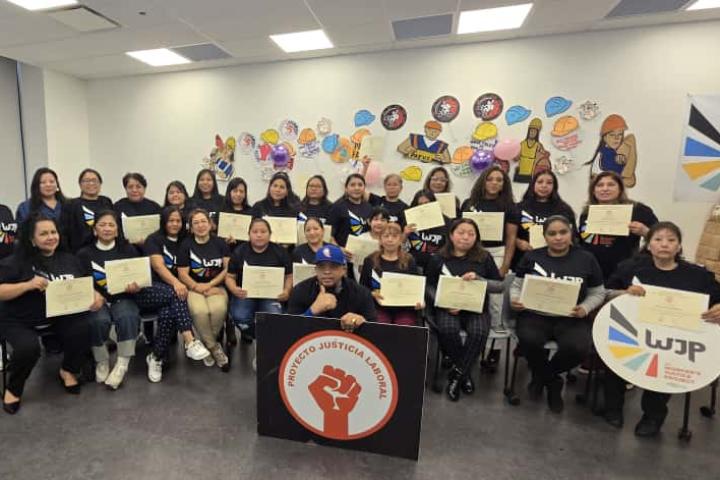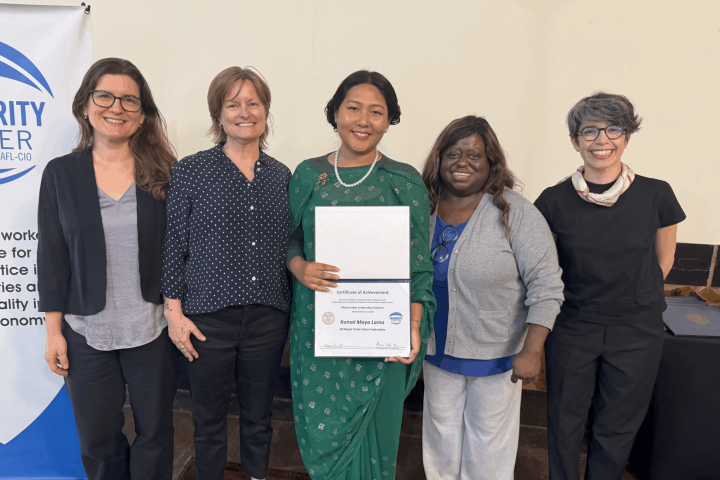Looking ahead: The Future of Care Work
In the action sessions where we all identified needs and strategies for taking care of care workers, some key themes emerged:
- Care workers want more training and expanded access to training that already exists
- Workers’ rights education
- Skill-building / workforce development centered on workers’ vision of lifting standards of care
- Popular education
- Across many sessions, people named the need for more mental and emotional health support for care workers — peer support systems, peer staff hotlines, regeneration circles, in-house mental health care, and community care networks.
- We also heard a lot of discussion about the need for strategies that give more care workers access to unionization — and for stronger labor laws to protect workers and support union organizing, as well as stronger, more fully funded enforcement of worker protections.
- In many sessions, we heard the desire to learn more about and scale the strategy of building worker co-ops and other successful models that support good employment structures for care workers.
- Many people raised the need to create more space for building solidarity and learning across the different sectors of the care economy, as well as building regional alliances and deeper relationships with community organizations.
- Workers and organizers were enthusiastic about existing peer mentorship and apprenticeship models and want to see those expand.
- Many sessions lifted up the need for living wages and more robust social benefits for care workers (and all workers) — universal paid leave; access to affordable, high quality childcare and family care; universal healthcare; affordable housing; and more accessible, affordable transportation — these were some of the needs highlighted.
- There was a lot of attention on strategies to ensure that immigrant care workers have access to unions, worker organizations, strong protections, and pathways to status.
- We also heard the desire for research that explores the future directions of the care economy, as well as research that helps unions and worker centers confront corporate power and private equity.
- There was interest in using digital technologies to support information sharing, organizing, and education for care workers’ wellbeing and for making their jobs better.
- There was also interest in better understanding how emerging technologies can be used to make care workers’ jobs better — rather than to make workers more precarious.


